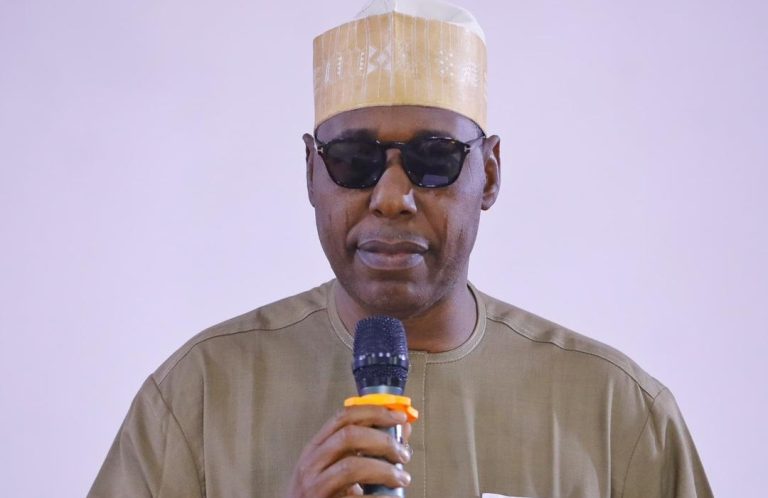Governor Babagana Umaru Zulum of Borno State has reaffirmed the commitment of the state’s commitment to sustainable energy development saying it will provide reliable electricity supply in Borno.
Governor Zulum stated this when he received a high-level delegation from the Rural Electrification Agency (REA) and the World Bank in Maiduguri, the state’s capital recently. Represented by his deputy, Alhaji Umar Usman Kadafur, the governor thanked the delegation for prioritising project sites deployed to Borno State.
He emphasised the profound impact of renewable energy on citizens who had previously remained without access to electricity while highlighting ways energy supply has alleviated their hardship. According to the deputy governor, the Energizing Education Program (EEP) aligns with the state’s commitment to sustainable energy development and ensuring reliable electricity supply.
He underscored the state’s policies to reduce carbon emissions, increase energy access in underserved communities and foster economic growth through innovative energy solutions while assuring that the state government would prioritise the security of the projects and called for adequate safeguards.
Usman Kadafur also commended REA’s Managing Director/CEO, Abba Abubakar Aliyu and emphasised the importance of sustaining the collaboration between the World Bank and REA.
The REA boss who spoke on the significance of providing electricity to tertiary institutions noted that the second phase of the project, funded by the World Bank, aims to provide 12MW of power, benefiting 350,000 students and impacting over 50,000 staff, including non-academic staff. He highlighted the near completion of the Phase II Project which include seven universities and two teaching hospitals.
World Bank Practice Manager for West Africa, Ashish Khanna, expressed the World Bank’s commitment to the Energizing Education Programme (EEP) and Nigeria’s electrification. He emphasised the project’s role in skill-building, job creation, and fostering innovation among students, especially female STEM students.
Khanna said due to their confidence in the REA’s project implementation, the World Bank is providing an additional $750 million for the second phase of the program called the Distributed Access through Renewable Energy Scale-up (DARES).
Head of the Nigeria Electrification Project, Olufemi Akinyelure, in his remarks said, “Our mission is to create a sustainable future for Nigeria’s educational institutions. The EEP Phase II underscores our dedication to leveraging renewable energy solutions to drive academic excellence and gender inclusion in STEM fields.”
The Energizing Education Programme (EEP) is an initiative of the Federal Government of Nigeria (FGN) implemented by the REA to deliver dedicated captive solar hybrid power systems to 37 Federal Universities and seven University Teaching Hospitals nationwide.
Phase I of the EEP has already been implemented and Phase II, funded by the World Bank and nearing completion, will extend these benefits to additional institutions. Phase II will see the provision of solar hybrid power systems to seven Federal Universities, namely: University of Calabar & Teaching Hospital; University of Abuja; Nigerian Defence Academy; Michael Okpara University of Agriculture, Umudike, Abia State and the Federal University of Agriculture, Abeokuta.
Others are Federal University Gashua, Yobe; University of Maiduguri, Borno State and two associated University Teaching Hospitals across Nigeria’s six geopolitical zones.
This phase includes the installation of streetlights for improved security, the construction of a world-class renewable energy workshop and training center and the upgrade of existing distribution infrastructure.
